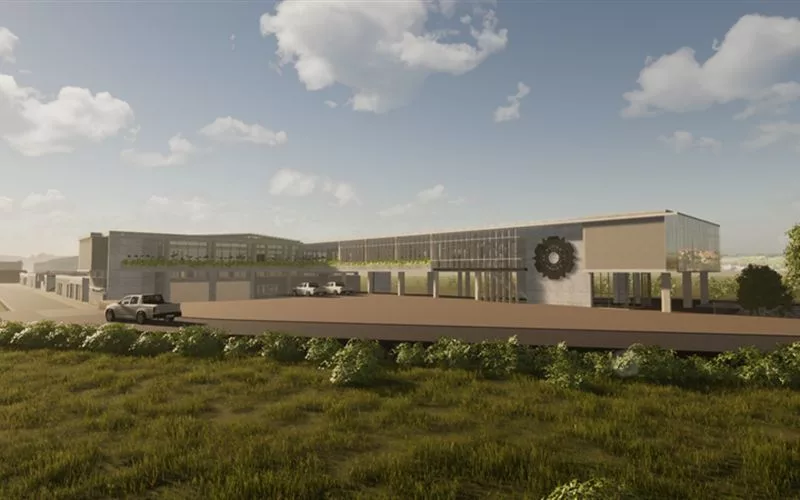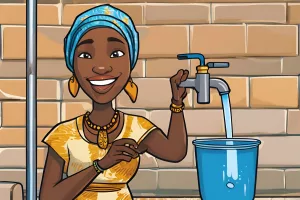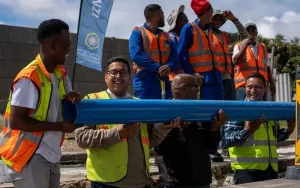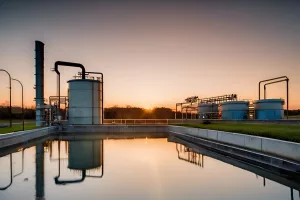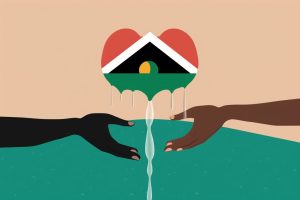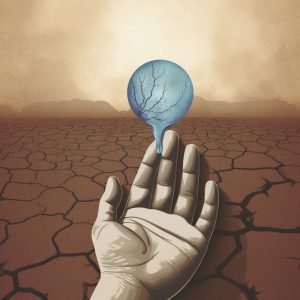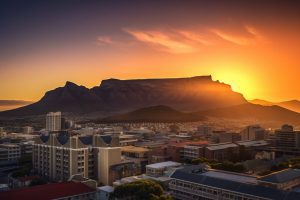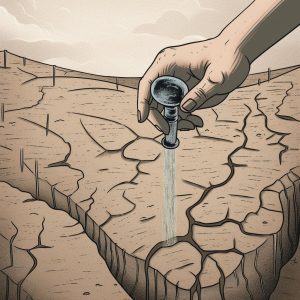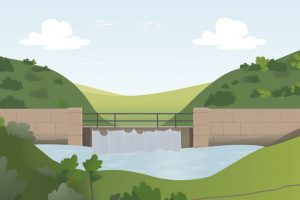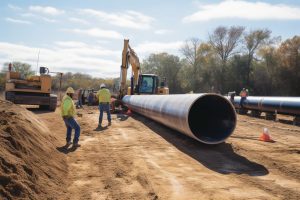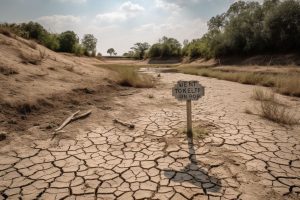Cape Town is building two huge projects to get water. One project will clean sewage water, turning yesterday’s flush into tomorrow’s drink! The other project will take salty ocean water and make it fresh. These plans will give Cape Town lots of water by 2030, so they won’t have to worry about running out, even without much rain. It’s a big step to make sure everyone has water for years to come. These projects are like magic, making sure the city’s taps keep flowing!
South Africa’s Department of Water and Sanitation is taking a new approach to tackle water and sanitation challenges in the country. The plan includes community outreach programs, diversifying water sources, and enhancing access to water and sanitation services. The department is also collaborating with municipalities and the private sector to achieve its objectives and improve the standard of living for all South Africans. The strategy aims to address challenges such as water scarcity, inadequate access to water and sanitation services, and decaying municipal water and sanitation services.
Cape Town’s Water and Sanitation Vision aims to provide dignified water and sanitation services to all residents, with a proposed budget of R5,317bn dedicated to water and sanitation in the financial year of 2024/2025. The plan includes installing new taps and toilets in informal settlements, diversifying water sources, and improving infrastructure and treatment facilities. The city is also committed to building resilience during instances of loadshedding, preserving the environment, and reducing the risk of pollution. This investment signifies a brighter, sustainable future for the city and its inhabitants.
A landmark agreement is set to transform the water scarcity situation in Musina Town, South Africa. The bilateral pact between South Africa and Zimbabwe facilitates the transfer of treated water from Zimbabwe to Musina, with an anticipated transfer of 15 million cubic meters annually. This agreement is a continuation of diplomatic cooperation between the two African countries and is perfectly timed with National Water Month.
LaundReCycle is an innovative solarpowered laundry service in Cape Town that recycles water in a loop system and purifies it through a biological process before reusing it for laundry. The service charges minimal fees, making it affordable for underprivileged individuals, and generates a monthly revenue of R2,500 to R3,000. Beyond just providing laundry services, LaundReCycle offers homeless individuals a sense of selfworth and serves as an entryway to various Streetscapes programs. The project is deemed successful and plans to further develop the concept of reusing treated water.
The Department of Water and Sanitation (DWS) of South Africa has recently revised the regulations for water use license applications to ensure equitable allocation of water resources and streamline the licensing process. The revised regulations were published on May 19, 2023, in response to President Cyril Ramaphosa’s call to reduce the processing time from 300 days to only 90 days.
South Africa is facing a serious water scarcity issue, as it is considered one of the driest countries in the world. To address the challenges associated with the country’s water sector, the National Ministerial Water Sector Sustainability Symposium is being organized. The symposium will bring together water experts, government officials, and other stakeholders to discuss key issues concerning the country’s water resources.
Cape Town is a city known for its beauty and culture that attracts visitors from around the world. However, the city is not without its challenges. Crime, water scarcity, and power outages are just a few of the issues that Cape Town faces. In this article, we will delve into the vision of Mayor Geordin HillLewis and the strategies being implemented by the City of Cape Town (CoCT) to overcome these obstacles.
Deputy Ministers David Mahlobo and Judith Tshabalala recently reaffirmed the South African government’s commitment to ensuring equitable water supply and dignified sanitation for all citizens. Their statements align with the country’s constitution and Minister Senzo Mchunu’s proposed budget for the 2023/2024 fiscal year.
South Africa, a waterscarce country, faces several challenges in providing its citizens with access to clean water and sanitation services. The Department of Water and Sanitation (DWS) has recently presented its budget for the financial year 2023/24, outlining its plans to address these issues. This article provides an indepth analysis of the budget speech, examining the key projects, initiatives, and future plans of the DWS.
The Loskop Bulk Water Supply Project is a significant initiative to address the water supply challenges experienced by communities in the Thembisile Hani Municipality and eight other villages in the Limpopo province of South Africa. The project is worth R1.67 billion and has five work packages, including laying 30 km of pipelines from Loskop Dam and constructing two water reservoirs, pump stations, and water treatment works.
The Western Cape of South Africa has been grappling with a severe drought for several years. In 2017, the region introduced water restrictions to help manage the scarce water supply. While there has been a slight improvement in the situation in 2020, the region’s water supply remains fragile.

